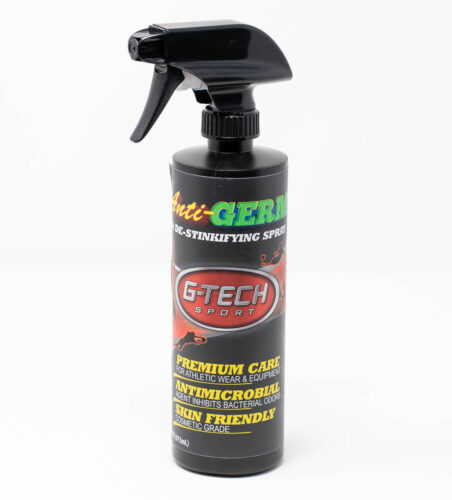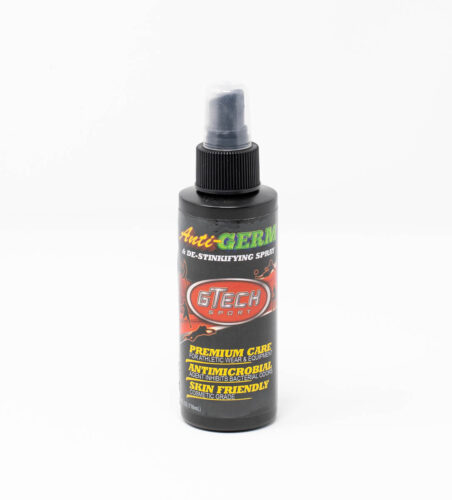Medical Cannabis For Autism
Medical Cannabis is the twenty-first century’s bad boy wonder drug. This herbal medicine has a long history of illicit drug use, and is only legal for medical prescription and consumption by some states in the union.
However, cannabis’s ability to fight off the symptoms and side effects of a plethora of conditions and treatments is garnering a lot of attention in the medical community. Once considered a contraband herb, cannabis is getting new life as a chemotherapy aid to ward off the ill effects of this cancer treatment and as a psychotherapeutic drug to combat the psychological distress that PTSD victims cope with on a daily basis.
For these purposes – and many more – cannabis is far more than a plaything for frat boys looking for something to do on Friday night. cannabis is now respected by legions of doctors and scientists who understand the positive impacts that cannabis has on the patients that they treat.
When it comes to treating the effects of autism, cannabis holds a lot of potential for helping individuals living with the disorder to experience relief from the psychological and mental symptoms that autism causes. Studies worldwide offer hope for autism patients – and their parents – to imagine life beyond autism.

What is Medical Cannabis?
Medical cannabis is concentrated cannabis that is used for treating a variety of illnesses. Medical cannabis is used to treat conditions across the spectrum of known medical ailments, including:
- AIDS
- Alzheimer’s disease
- Arthritis
- Asthma and other breathing disorders
- Cancer and chemotherapy-related side effects
- Crohn’s, Irritable Bowel Syndrome, and other gastrointestinal disorders
- Epilepsy
- Glaucoma
- Hepatitis C
- Migraines and other conditions with persistent headaches
- Multiple Sclerosis
- Chronic and acute pain
- Psychological conditions, including:
- Eating disorders
- Autism
- PTSD
- Depression
- Bipolar disorder
- Tourette Syndrome
- Terminal illnesses
The effectiveness of treatment for these conditions vary, as do the administration methods of the medical cannabis. For starters, let’s look at how medical cannabis is derived, the compounds that you can get and how they interact with your body systems to deliver the desired effects.
- Cannabidiol (CBD) – this cannabis compound delivers many of the positive effects of cannabis without the less desirable side effects, like increased drowsiness and psychoactive high. It’s useful for treating conditions that don’t benefit from an added level of psychoactivity and for older patients who have negative feelings toward cannabis, but need its healing properties.
- Tetrahydrocannabinol (THC) – this cannabis compound is one of the unique factors that makes pot, well, pot. Of course, in the medical cannabis world, the power of THC can be used to help calm patients, stimulate appetite and provide a variety of other powerful healing properties that patients suffering from a variety of illnesses can benefit from.
Many autism patients find relief from some combination of both CBD and THC, depending on their specific symptoms and their severity. Additionally, as children age and mature, different combinations might become more or less effective as their brain chemistry, hormones and autism severity adjusts to the growing body.
Medical cannabis is administered in many different forms, which are:
- Combustibles (flowers, oils, concentrates) that are smoked
- Non combustibles, such as vaporized THC, which is inhaled through a vaporizer
- Edibles, tinctures and herbal drinks
- Topical applications, including sprays, creams, and analgesics
Most parents report the best success with using THC and CBD oils and buds in a premixed combination that can be added to food, like mashed sweet potatoes or cookies.
The Arguments for Medical Cannabis
There are both anecdotal and medical support for using medical cannabis to treat autism. Many of which are becoming more mainstream as medical cannabis comes into the forefront.
Parents are championing the cause of getting access to medical cannabis to help their children who are suffering from autism. Here are some of their stories:
- Noa Shulman – a 17-year-old from Israel – is part of a large Israeli medical research cohort that is evaluating the effects of medical cannabis on children and young adults who are suffering from autism. Noa’s mother feeds her oil mixed with mashed sweet potatoes daily and notes that there are some days where Noa is much more relaxed and happy, which is a considerable improvement in her behavior from before.
- Mieko Hester-Perez’s son, Joey – a 10-year-old from California – began feeding her son cookies with medical cannabis in them once every couple of days to help him gain back his appetite after he had lost a significant amount of weight from decreased appetite. Traditional autism medications had left Joey with a severely diminished appetite so Hester-Perez began treating him with medical cannabis after getting a prescription from her son’s doctor. She says that Joey’s appetite is significantly improved and that his behavior is also much better than it was prior to beginning the medical cannabis regimen.
- Marie Myung-Ok Lee began treating her son with medical cannabis cookies after a synthetic cannabis prescription failed to adequately treat his autism symptoms. After beginning the medical cannabis treatment, Lee’s son shows remarkable behavioral improvement.
- Debbie Hosseini began giving her 15-year-old son, Kevin, medical cannabis to help him with worsened behavioral issues that cropped up after puberty. Since beginning the medical cannabis treatment, Kevin is much more verbal and is able to sleep through the night and eat normally again.
There is also suggestion that medical cannabis can prevent autism-related seizures, which negatively impact the quality of life of autism patients. Hemp oil, is particularly helpful when combatting seizures that can trigger tantrums and worsen other autism symptoms.
Daniel Coury, the medical director of Autism Speaks Autism Treatment Network believes that hemp oil – which varies slightly from actual cannabinoids THC and CBD – treats the part of the brain that controls the spastic behavior that leads to seizures and autistic outbursts.
The Arguments Against Medical Cannabis
There is some caution for parents interested in using medical cannabis for their children with autism.
Culturally, the acceptance for parents giving their children medical cannabis is very stymied. Though there are plenty of activists and autism families working to combat the stereotype that cannabis leads to other drug use and addictive behavior, it’s an uphill battle to get widespread acceptance of children with autism using medical cannabis.
Doctors, too, are unsure of the long-term effects of children with autism using medical cannabis. While cannabis use is considered to be safe, and there are no documented fatalities associated with cannabis use – medical or otherwise – it’s still an ethical grey area for doctors prescribing medical cannabis for children.
How to get a Prescription for Medical Cannabis
In order to access medical cannabis, you need a prescription so that you can shop at your local medical cannabis dispensary. While autism has not previously been considered a condition for which medical cannabis can be prescribed, some doctors work around this, either by taking advantage of liberal state laws (California has the most progressive legislation in this area) or by pointing to an autism symptom as a condition that needs treatment.
You need to work closely with your doctor to get a medical cannabis prescription. Detail symptoms and episodes so that he or she can understand the needs that your autistic child has. Understanding is the key to a medical breakthrough, so be honest, but don’t be afraid to switch to a doctor who can prescribe you medical cannabis when another one won’t.
You’ll then need to work with local and/or state agencies to get a medical cannabis ID card that allows you to shop at a dispensary. This will involve paperwork and your prescription so that you can get the access that you need.
Wrapping it Up
As you can see, there are many ways in which autism patients can benefit from medical cannabis use. Many diseases and treatments find partial or complete reversal from cannabis therapy, and parents who have experimented with medical cannabis as treatment for their autistic children have only positive things to say about their experience.
If you’re interested in finding a way to treat your child’s autism with medical cannabis, talk to your child’s pediatrician, neurologist or autism specialist to learn more about this treatment. Don’t be deterred by doctors who disregard the suggestion, and advocate for your child’s rights by patiently working through information on medical cannabis with your child’s doctor or by finding a more supportive practice to treat your child.
Additionally, even once you get a medical cannabis prescription, it may take some trial and error to determine what works best for your child. Persistence is key here, just as it is when working with your doctor. Don’t be afraid to ask questions or try different strains and serving methods. While medical cannabis may not cure your child’s autism, it can help your child and you to live a more enjoyable and connected life together.
If you have any questions or would like to learn more about Guardian Helmets send us a message on Facebook or Twitter.

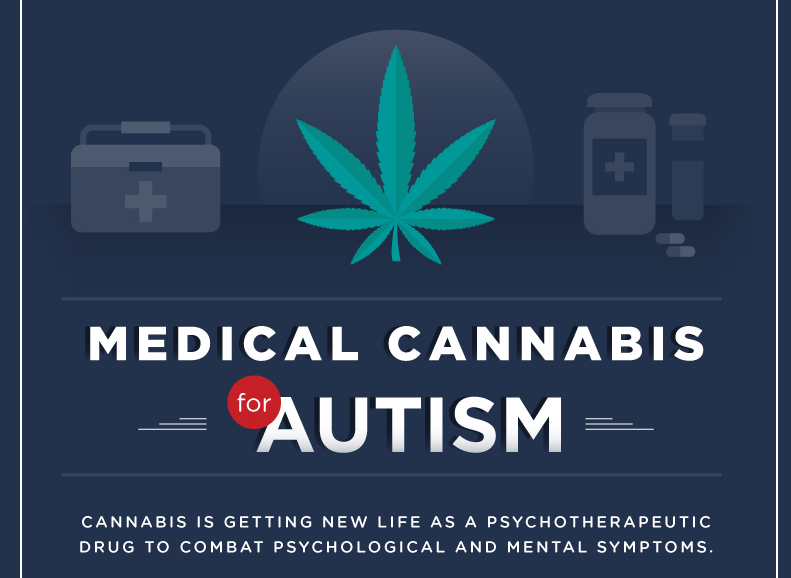
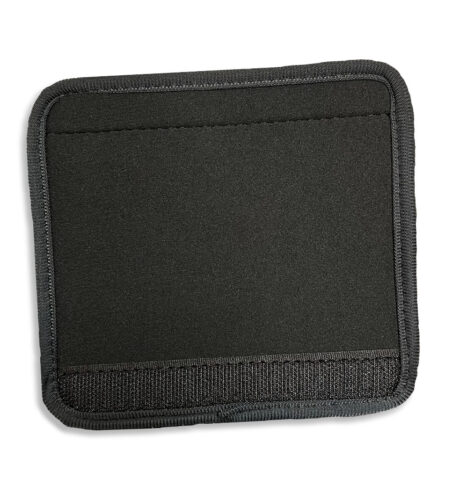 Locking Chin Strap For Guardian Helmets
Locking Chin Strap For Guardian Helmets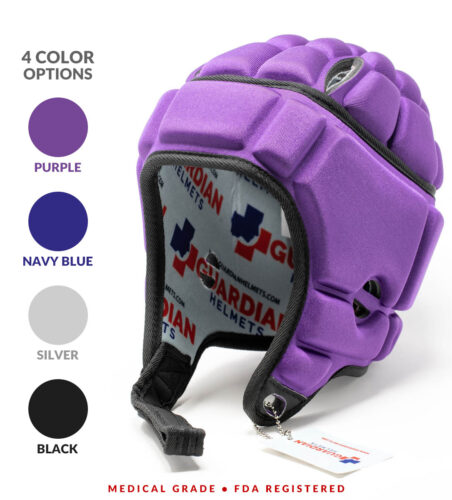 Guardian Soft Special Needs Helmet
Guardian Soft Special Needs Helmet
